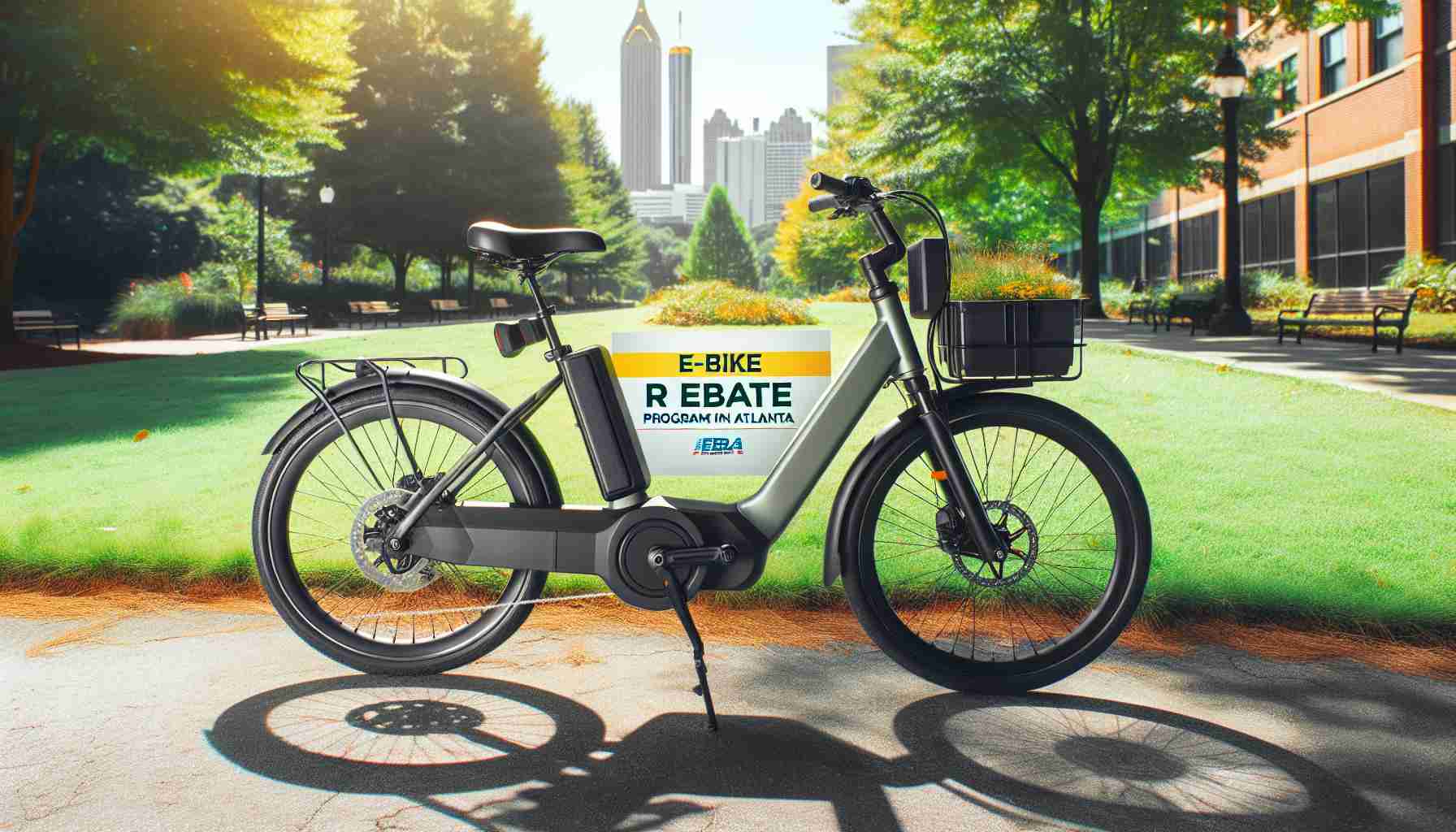Atlanta is taking a leap towards sustainability and affordability with its newly launched e-bike rebate program. This initiative aims to provide low-income individuals with access to affordable transportation options, reduce transportation costs, and promote sustainable living.
With a $1 million investment from the City of Atlanta, the e-bike rebate program aims to break down barriers to e-bike ownership and encourage residents to replace solo car trips for their daily commute, grocery shopping, and recreational activities. By doing so, it not only reduces the burden on individuals’ wallets but also contributes to reducing traffic congestion and promoting cleaner air.
To ensure a fair distribution of rebates, the program will use a lottery system to select recipients. The city has set aside 75% of the rebates for individuals whose income is at or below 80% of the Atlanta region’s median household income, which is approximately $54,000 per year. The income threshold varies depending on the household size.
Eligible residents meeting the income criteria can receive a rebate of up to $2,000. Standard e-bike purchasers can receive a $1,500 rebate, while those opting for cargo e-bikes can receive the maximum rebate amount. Other qualifying residents can still benefit from a $500 rebate for a standard e-bike or a $1,000 rebate for a cargo e-bike.
Participating retailers within the city will provide upfront rebates, meaning the rebate amount will be deducted from the cost of the e-bike at the time of purchase. This instant discount incentivizes individuals to take advantage of the program and make the switch to eco-friendly transportation.
It is important to note that the program is limited to one rebate per resident, and recipients will have 90 days to purchase an e-bike from a participating retailer. The e-bikes purchased with the rebate money are strictly for personal use and must not be resold.
By embracing e-bikes as a sustainable and cost-effective alternative, Atlanta’s e-bike rebate program is expected to result in significant savings for recipients. While the average person spends over $11,000 annually on transportation expenses, the annual electricity cost to power an e-bike is less than $15. Additionally, as more people adopt e-vehicles, it will lead to reduced traffic congestion and cleaner air for everyone in the city.
With the deadline to apply for the program approaching on June 23, eligible Atlanta residents are encouraged to take advantage of this opportunity to embrace a more sustainable and affordable mode of transportation. Apply now and join the movement towards a greener future.
The e-bike industry has been experiencing significant growth in recent years, driven by factors such as increased awareness of climate change, rising fuel costs, and a desire for alternative modes of transportation. E-bikes, also known as electric bicycles, are equipped with a battery-powered electric motor that assists with propulsion, making them an attractive option for those looking for an eco-friendly and efficient means of getting around.
Market forecasts suggest that the e-bike industry will continue to expand in the coming years. According to a report by Market Research Future, the global e-bike market is projected to reach a value of $38.6 billion by 2025, growing at a compound annual growth rate (CAGR) of 9.01% during the forecast period.
One of the key drivers of this growth is the increasing adoption of e-bikes in urban areas. E-bikes offer a convenient and cost-effective alternative to traditional modes of transportation, particularly for short to medium-distance trips. They require less physical exertion compared to traditional bicycles, making them accessible to a wider range of individuals, including those who may have physical limitations or who are not regular cyclists.
However, despite the numerous benefits of e-bikes, the industry also faces several challenges. One of the main issues is the lack of infrastructure and facilities to support e-bike usage. Many cities do not have dedicated bike lanes or charging stations, which can limit the usability and convenience of e-bikes. Additionally, there may be regulatory hurdles and restrictions on e-bike usage in certain areas, which can hinder market growth.
To address these challenges and promote the adoption of e-bikes, initiatives like Atlanta’s e-bike rebate program are crucial. By providing financial incentives and making e-bikes more affordable for low-income individuals, programs like this can help overcome barriers to entry and increase e-bike ownership rates.
For more information about the e-bike industry and market forecasts, you can visit industry-leading sources such as the Electric Bike Report (link) or Bike Europe (link).
To learn more about e-bike infrastructure and related issues, you may find resources provided by the League of American Bicyclists (link) or the National Association of City Transportation Officials (link) helpful.
By supporting initiatives like Atlanta’s e-bike rebate program and staying informed about the industry and market trends, we can all contribute to a greener and more sustainable future.







